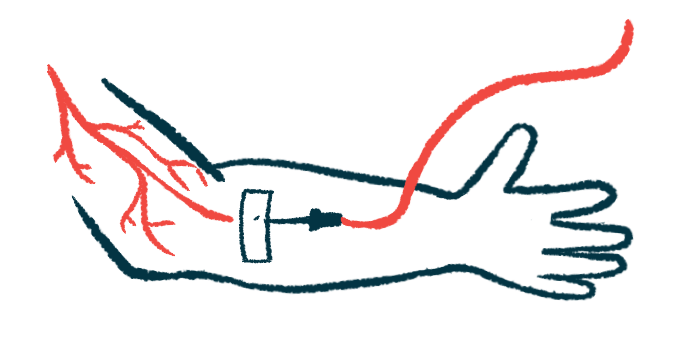
A third dose of CER-1236, Cero Therapeutics’ T-cell therapy candidate for acute myeloid leukemia (AML), was administered to an AML patient taking part in an early clinical trial, with the goal of generating further safety and dosing information.
The additional dosing — within the Phase 1/1b trial’s first group of participants — was given to assess the feasibility of administering several doses of the therapy instead of a single higher dose, Cero stated in a company press release.
No treatment-related toxicities were observed in the first three patients dosed so far in the trial, with the second and third participants having received additional CER-1236 infusions, the company noted.
Based on these favorable safety findings and an observed expansion of CER-1236 therapeutic cells, recruitment for a second group of participants — who will receive a higher CER-1236 dose — has been cleared by the trial’s dose escalation safety committee. Participants are being recruited at sites in Colorado, Tennessee, and Texas.
Dosing of the first patient in this second group is expected in the coming weeks, “pending completion of study-related regulatory notifications and approvals,” the release stated.
“Our recent milestones highlight Cero’s ability to execute and advance CER-1236, even in a challenging financial climate,” said Andrew Kucharchuk, Cero’s chief financial officer. “We are deeply grateful for the continued confidence and commitment of our shareholders, whose support enables us to move this promising program forward.”
T-cell therapy CER-1236 aims to promote cancer cell death
AML, the most common type of leukemia in adults, is a form of blood cancer that begins in the bone marrow, the spongy interior of some bones where blood cells are produced. It develops when genetic mutations cause immature blood cells to grow out of control, taking up excessive bone marrow space and ultimately entering the bloodstream.
With CER-1236 — which is administered directly into the bloodstream — a patient’s own immune T-cells are collected and modified in a lab. The modified cells are designed to produce a chimeric engulfment receptor (CER) protein that will bind to the T-cell membrane protein 4 (TIM-4) on the surface of cancerous cells.
The engineered T-cells are then delivered back to the patient, where their binding to TIM-4 is expected to promote cancer cell death and trigger a long-term immune response against cancer cells.
CER-1236 was granted fast track designation and orphan drug status by the U.S. Food and Drug Administration. These designations aim to incentivize and accelerate the development of treatments in the U.S. with the potential to treat serious diseases.
The Phase 1/1b trial (NCT06834282) is evaluating the safety and preliminary efficacy of CER-1236 in an estimated 18 adults with AML who have experienced relapses, failure to respond to other treatments, continued disease activity through remission, or who carry certain mutations.
The study’s first part is its dose-escalation portion, in which the first participant was dosed earlier this year. It is testing several different doses of the therapy, with the main goal of assessing the occurrence of adverse events and serious adverse events.
Secondary goals of this portion include an evaluation of therapy’s pharmacological properties and the proportion of participants in which cancer shows a measurable reduction or disappearance.
Results will help establish dose for use in trial’s next stage
Based on safety results, the researchers will establish a recommended dosage to test in more participants during the trial’s second, dose-expansion portion, which will also assess the therapy’s safety and preliminary efficacy.
While main analyses of the first group of three participants are now completed, and the study has moved to its second group of participants, two of the initial patients dosed have received additional CER-1236 infusions. A third infusion was given to one of the patients at the same dose as the first two infusions (1 million cells per kg of body weight).
Trial participants will be followed for up to two years, and the study is expected to conclude by the end of 2029.
The post Cero seeking more safety, dosing data on T-cell therapy for AML appeared first on Rare Cancer News.

